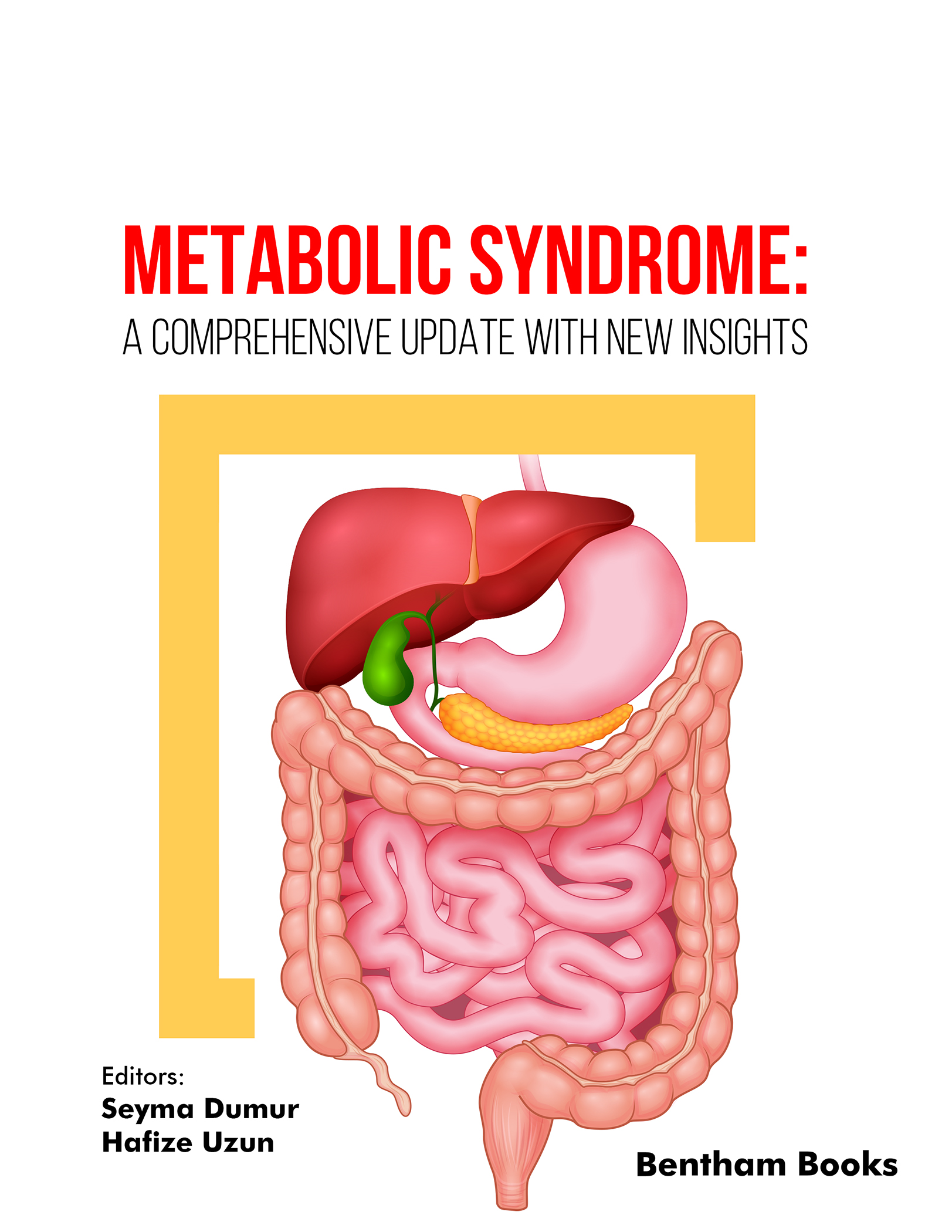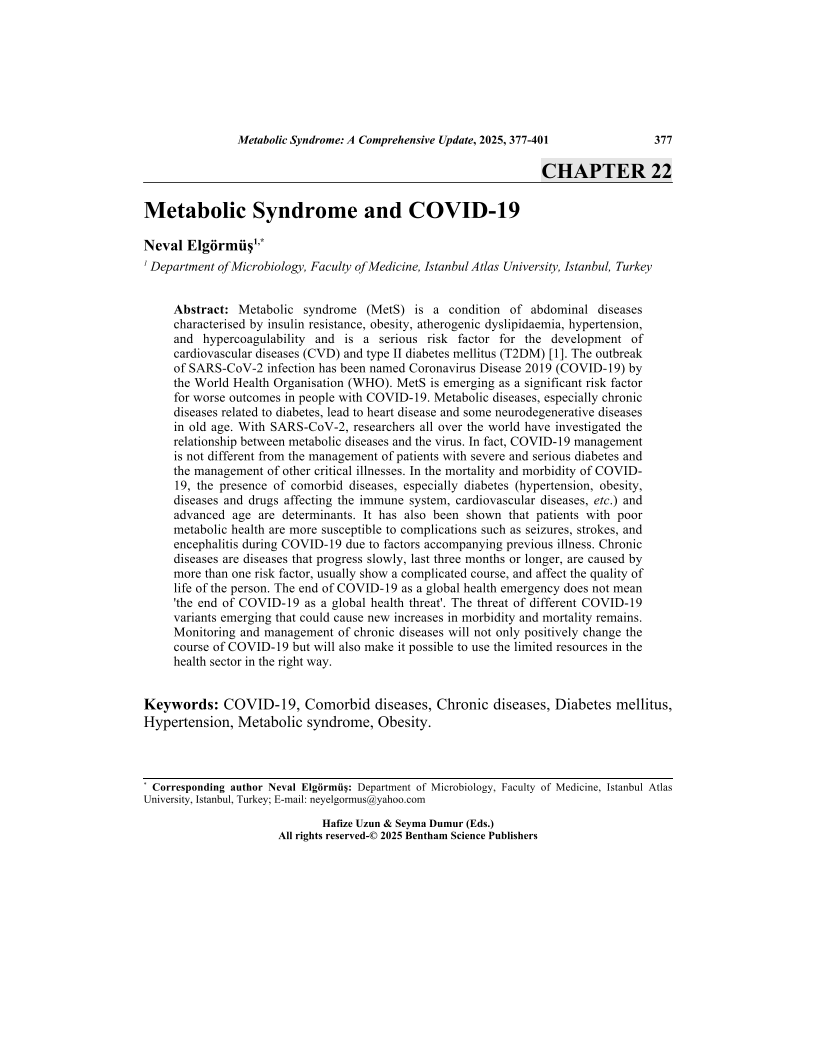Metabolic Syndrome and COVID-19

- By Neval Elgörmüş1
-
View Affiliations Hide Affiliations1 Department of Microbiology, Faculty of Medicine, Istanbul Atlas University, Istanbul, Turkey
- Source: Metabolic Syndrome: A Comprehensive Update with New Insights , pp 377-401
- Publication Date: January 2025
- Language: English
Metabolic Syndrome and COVID-19, Page 1 of 1
< Previous page | Next page > /docserver/preview/fulltext/9789815322132/chapter-22-1.gif
Metabolic syndrome (MetS) is a condition of abdominal diseases characterised by insulin resistance, obesity, atherogenic dyslipidaemia, hypertension, and hypercoagulability and is a serious risk factor for the development of cardiovascular diseases (CVD) and type II diabetes mellitus (T2DM) [1]. The outbreak of SARS-CoV-2 infection has been named Coronavirus Disease 2019 (COVID-19) by the World Health Organisation (WHO). MetS is emerging as a significant risk factor for worse outcomes in people with COVID-19. Metabolic diseases, especially chronic diseases related to diabetes, lead to heart disease and some neurodegenerative diseases in old age. With SARS-CoV-2, researchers all over the world have investigated the relationship between metabolic diseases and the virus. In fact, COVID-19 management is not different from the management of patients with severe and serious diabetes and the management of other critical illnesses. In the mortality and morbidity of COVID19, the presence of comorbid diseases, especially diabetes (hypertension, obesity, diseases and drugs affecting the immune system, cardiovascular diseases, etc.) and advanced age are determinants. It has also been shown that patients with poor metabolic health are more susceptible to complications such as seizures, strokes, and encephalitis during COVID-19 due to factors accompanying previous illness. Chronic diseases are diseases that progress slowly, last three months or longer, are caused by more than one risk factor, usually show a complicated course, and affect the quality of life of the person. The end of COVID-19 as a global health emergency does not mean 'the end of COVID-19 as a global health threat'. The threat of different COVID-19 variants emerging that could cause new increases in morbidity and mortality remains. Monitoring and management of chronic diseases will not only positively change the course of COVID-19 but will also make it possible to use the limited resources in the health sector in the right way.
-
From This Site
/content/books/9789815322132.chapter-22dcterms_subject,pub_keyword-contentType:Journal -contentType:Figure -contentType:Table -contentType:SupplementaryData105

